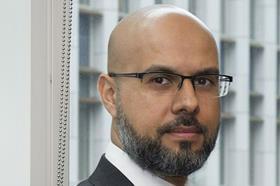While the international community responded quickly to Russia’s illegal invasion of Ukraine by the imposition of sanctions, over 18 months later, questions must be asked as to whether enough is being done to hold Russia to account. Is it acceptable for G7, EU and other countries to sit on Russian assets as leverage for the future? Or should these assets be used to help Ukraine now – for military, humanitarian or reconstruction purposes? Should we move now from the freezing to the seizing of Russian assets?


At its November meeting in Japan, the G7 confirmed that Russian assets would remain frozen until Russia pays for the damage it has caused to Ukraine. Estimates vary as to the quantity of assets but they are thought to include more than $300bn of foreign currency reserves of the Russian Central Bank and, in the EU alone, $58bn of Russian private property.

Given the scale of damage in Ukraine – running already into hundreds of billions of dollars – there is clearly a moral case for Russian assets to be used as reparations.
However, there is natural caution among western governments to take steps, and there are legal obstacles relating to property which need to be addressed.
In the case of private property, human rights concerns loom large; in particular, the right to peaceful enjoyment of possessions under Article 1 of the First Protocol to the European Convention on Human Rights. While national laws permit confiscation where the assets themselves are the proceeds of crime, the principle has been extended to situations where sanctioned persons act in breach of sanctions – for example, by transferring assets. The difficult question is whether property can be seized when there is no clear link to criminal activity – for example, whether the frozen property of a Russian oligarch can be confiscated simply by virtue of their connections to the Putin regime.
In the case of state property, the main obstacle is state immunity. In the context of Russia’s actions in Ukraine, two main theories are being proposed to limit its impact. First, the idea that the law of state immunity only applies to adjudication and enforcement by courts, whereas the freezing and confiscation of assets is something that is done by governments. Second, even if the seizure of Russian state assets was a breach of state immunity, it would be justified by the international law of countermeasures, under which a state may be excused its breach if it obliges another state to comply with international law. The argument is that Russia, by waging a war of aggression, has breached international law obligations that are owed to the international community at large. So, the UK, US, EU and other countries are entitled to take action in order to force Russia’s withdrawal from Ukraine and to make reparations for war damage.
Outside of the legalities there are also a number of perceived risks for states pursuing a policy of confiscation of Russian assets. One is anxiety over creating a precedent. Another is the fear that financial centres will lose the confidence of international investors if Russian assets are seized wholesale. Both of these concerns may be exaggerated if Russia’s invasion – and the west’s reaction – is viewed as an unusual and extreme event. Finally, seizure of Russian assets creates the risk of retaliatory action by Russia.
So far, at the international level, initiatives have led to the creation of a Register of Damage Caused by the Aggression of the Russian Federation against Ukraine under the auspices of the Council of Europe. This is only the first step, though, to reparation.
At the domestic level, current laws are perhaps not up to the task. Under the UK’s Proceeds of Crime Act 2002 assets can be confiscated where the property is obtained through unlawful conduct. However, this form of confiscation is predicated on criminal activity, whereas many leading Russian businessmen and corporations have been sanctioned merely by reference to their significance to the Russian economy or proximity to Putin’s regime. There is not necessarily evidence of involvement in criminal activities.
Certain jurisdictions are further ahead in this regard. Canada’s Special Economic Measures Act 1992 was amended in 2022 to include (on the application of the government minister) a judicial power to confiscate assets that have been frozen. Proceeds from confiscated assets may be put towards, among other things, the reconstruction of a foreign state adversely affected by a grave breach of international peace and security.
Mechanisms can be established to force Russia and its elites to pay. Countries united by democratic principles should create the conditions under which Russia will compensate for the damage caused to Ukraine. If international law is not to be a dead letter, then it is necessary to achieve reparation for the most grievous breaches.
Iskander Fernandez is a partner, Alexander Scard a legal director and Natalia Hniezdilova a litigation assistant at Kennedys































No comments yet